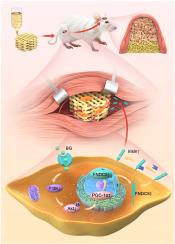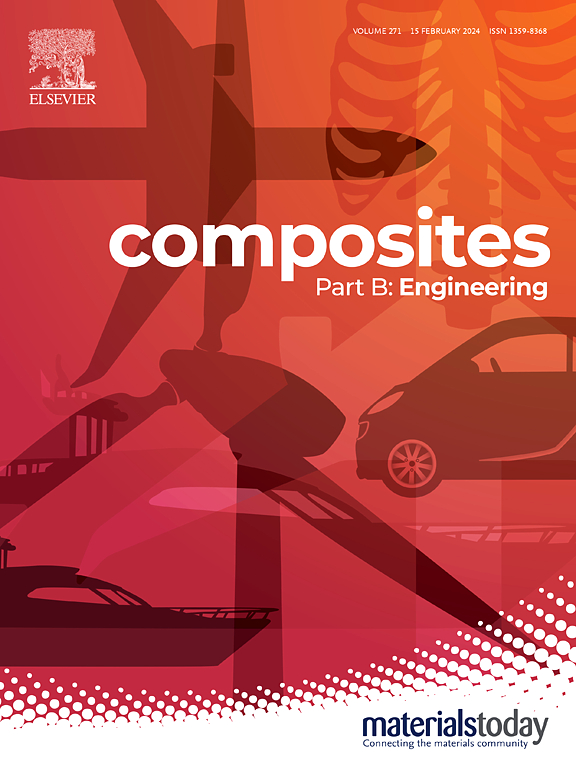Autologous myokine-loaded pre-vascularized bioactive scaffold enhances bone augmentation
IF 12.7
1区 材料科学
Q1 ENGINEERING, MULTIDISCIPLINARY
引用次数: 0
Abstract
The poor angiogenic ability is the main reason for the failure of bone augmentation material implantation. Pre-vascularized culture is considered to be an effective method to accelerate early angiogenesis, while the immune rejection has limited clinical application. Herein, since bone augmentation is an elective procedure, an easily accessible pre-vascularized silk fibroin/bioactive glass (SF-BG) scaffold without immune rejection was prepared by autologous intramuscular implantation. The SF-BG scaffolds exhibited outstanding vascularization ability in muscle by enhancing the muscle endocrine function. Further mechanism study confirmed that BG improved the synthesis and secretion of myokine irisin by regulating PI3K/Akt/PGC-1α/FNDC5 signaling pathway. After implantation in the bone augmentation position, the pre-vascularized BG scaffold with irisin loaded fostered the early angiogenesis of implantation and increased bone augmentation at the late stage. This study proposed a new idea for bone augmentation by autologous intramuscular pre-vascularized scaffolds.

自体肌酸负载预血管化生物活性支架可增强骨质增强效果
血管生成能力差是骨增量材料植入失败的主要原因。预血管化培养被认为是加速早期血管生成的有效方法,但免疫排斥反应限制了其临床应用。在此,鉴于骨增量是一种选择性手术,我们通过自体肌肉植入的方法制备了一种易于获得的无免疫排斥的血管前丝状纤维蛋白/生物活性玻璃(SF-BG)支架。通过增强肌肉内分泌功能,SF-BG 支架在肌肉中表现出卓越的血管化能力。进一步的机理研究证实,BG通过调节PI3K/Akt/PGC-1α/FNDC5信号通路,提高了肌动素鸢尾素的合成和分泌。在骨增量位置植入后,负载鸢尾素的预血管化 BG 支架促进了植入早期的血管生成,并增加了后期的骨增量。这项研究提出了利用自体肌肉内预血管化支架进行骨增量的新思路。
本文章由计算机程序翻译,如有差异,请以英文原文为准。
求助全文
约1分钟内获得全文
求助全文
来源期刊

Composites Part B: Engineering
工程技术-材料科学:复合
CiteScore
24.40
自引率
11.50%
发文量
784
审稿时长
21 days
期刊介绍:
Composites Part B: Engineering is a journal that publishes impactful research of high quality on composite materials. This research is supported by fundamental mechanics and materials science and engineering approaches. The targeted research can cover a wide range of length scales, ranging from nano to micro and meso, and even to the full product and structure level. The journal specifically focuses on engineering applications that involve high performance composites. These applications can range from low volume and high cost to high volume and low cost composite development.
The main goal of the journal is to provide a platform for the prompt publication of original and high quality research. The emphasis is on design, development, modeling, validation, and manufacturing of engineering details and concepts. The journal welcomes both basic research papers and proposals for review articles. Authors are encouraged to address challenges across various application areas. These areas include, but are not limited to, aerospace, automotive, and other surface transportation. The journal also covers energy-related applications, with a focus on renewable energy. Other application areas include infrastructure, off-shore and maritime projects, health care technology, and recreational products.
 求助内容:
求助内容: 应助结果提醒方式:
应助结果提醒方式:


